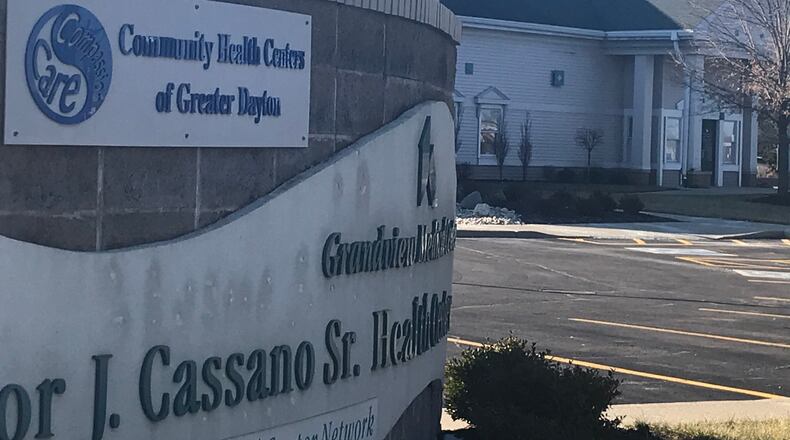That’s why Community Health Centers of Greater Dayton is starting a coordinated effort with local partners to reduce the disparity through screening, outreach and help navigating the complexities of treatment.
MORE: Men less likely to see primary care provider than women
More than 2,000 black women in the targeted age range are patients in the health network.
Community Health Centers doctors, nurses and staff will assist in coordinating care, help patients navigate the Montgomery County health care systems and ensure that the treatment plans and prescription medications of different specialists in the treatment of breast cancer work together as a whole.
Cheryl Scroggins, with Community Health Centers, said that while black women are getting screened for their mammograms at an appropriate rate, their mortality rate is much higher, and one of the goals is to learn why.
“So we have an opportunity to reach this group and get some information from them directly on what those specific barriers are,” Scroggins said.
Community Health Centers’ project received a grant, funded by Pfizer Global Medical Grants and overseen by the American Cancer Society, to focus on reducing racial disparities and helping optimize outcomes for women facing a breast cancer diagnosis.
The health workers have some ideas of what they will find. Scroggins said when looking at chronic diseases in general, common barriers are a lack of transportation, not having a primary care provider, not having a job with some flexibility in the schedule, or a lack of family support.
“There is a number of things that we can hypothesize, but it will be better for us to have some focus groups and conversations and find out from people directly what their impression is of those barriers so we can design some interventions,” Scroggins said.
Some of the factors that have been reported nationally on why the disparity exists include that black women are more likely to get triple-negative breast cancer, which is aggressive and more difficult to treat.
There are also large gaps in who is included in clinical trials of cancer drugs.
MORE: Asthma program helps keep Dayton kids in classroom
Since 2016, the Food and Drug Administration has approved four novel drugs for breast cancer. However, none of those clinical trials had more than 3% black participants, according to Pew Trusts.
In the same report, Pew said a large study published in the Journal of Oncology Practice found the use of a patient navigator led to black cancer patients — including many with breast tumors — being five times more likely to complete a clinical trial.
Outside of Dayton, other cities have found success in making a difference and saw more black women survive breast cancer. This includes Memphis, which had been identified as having by far the greatest disparity in breast cancer-mortality rates between black and white women of any of the 50 largest U.S. cities from 2005-2009, but then a community effort narrowed the gap in 2010 to 2014.
The Commercial Appeal newspaper there reported in 2017 that a coordinated effort was started that included forming an alliance geared at tackling the problem, funding for mammograms and treatment, and peer support.
Scroggins said there also needs to be more of a conversation about breast cancer beyond awareness about mammograms, with conversation that removes stigma and fear and helps women who get an abnormal results get the support and treatment they need.
MORE: Dayton health center getting new home, new name
“Unfortunately, breast cancer is not something that is openly talked about in the African American community. … As involved as I have been in minority health, and I am also a breast cancer survivor, I’m still striving to understand all the test results. And it’s a really complicated conversation to have with your doctor and really understand the process. So we need to have more provider education and we need to really have more community education about what it means to get an abnormal result,” Scroggins said.
The overarching goal of the project is to improve access to affordable breast cancer screening for low-income, medically undeserved women as well as to facilitate care transitions, care management, and improved communication for women with abnormal mammograms.
“Community Health Centers of Greater Dayton has a history of producing good clinical outcomes, and we are excited to partner with the American Cancer Society to address health disparities in breast cancer mortality,” said Gregg Hopkins, Community Health Centers executive director.
Community Health Centers of Greater Dayton: Facts & Figures
18,200: Patients in 2019
58,700: Patient visits in 2019
7: Health centers operated by the group, including six offices and a mobile health unit
About the Author
